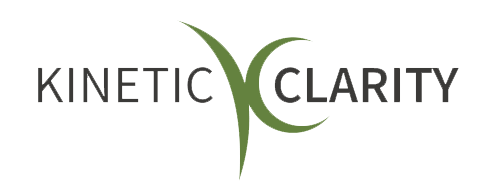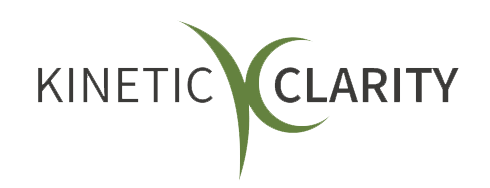Emotional Intelligence Unpacked: A Leader's Guide to Understanding and Developing EQ
Learn what emotional intelligence is, and the profound role it plays in leadership.

I have a secret that may surprise you. A profoundly impactful force shapes our decisions, strategies, and interactions. It’s called emotional intelligence (EQ), and it plays a decisive role in leadership.
This guide is dedicated to helping us unravel EQ's essence and showcasing its role in modern leadership styles. We’ll also review a few practical steps for you as a leader to understand and enhance your emotional intelligence.
As we navigate this idea of being emotionally intelligent, I urge you to reflect on what you learn and consider its impact on your leadership journey. Off we pop!
Understanding Emotional Intelligence
At its core, emotional intelligence encompasses the ability to recognize, understand, manage, and use our emotions in positive ways. We use emotional intelligence to communicate effectively, empathize with others, overcome challenges, and defuse conflict.
In the traditional view of leadership, authority and command have often been in the position of prominence. Leaders are expected to direct, control, and make decisions firmly and decisively.
However, as the way we work and our understanding of human dynamics change, a new paradigm has emerged–one where emotional intelligence plays a central role. This change is a profound shift in how we see and understand leadership effectiveness. We’re moving beyond the linear ideas of authoritative command to embrace a more nuanced, empathetic, and human-centric approach.
If you think this approach means doing away with structured work, it doesn’t. It requires more work. It doesn’t do away with the importance of decisiveness or authority. Instead, it enriches these more traditional qualities by adding a deeper layer of human connection. Equipped with high EQ, we become better at navigating the complex emotional landscapes of our teams. We can inspire and motivate in ways that purely authoritative approaches can’t.
Connecting on a human level is critical to building trust within a team. Trust, in turn, is the cornerstone of effective leadership.
When leaders demonstrate empathy, authenticity, and vulnerability, we create an environment where team members feel seen, heard, and valued. This sense of belonging and security fosters open communication, encourages risk-taking, and promotes collaboration. In such an environment, productivity flourishes–not out of fear or obligation but from genuine engagement and commitment to shared goals.
The Pillars of Emotional Intelligence in Leadership
EQ includes five critical components: self-awareness, self-regulation, motivation, empathy, and social skills.
Self-Awareness
The foundation of emotional intelligence is self-awareness. Leaders with high self-awareness are conscious of their emotions, strengths, weaknesses, and the effects of their actions on others. The journey to self-awareness helps you discover a surprising fact that many executive coaches talk about: who we are is how we lead.
Brené Brown coined the phrase in her work with Dare to Lead. As you build self-awareness, you learn how your feelings affect your decision-making. It affects your leadership style and interactions with team members. You start realizing simple things that make sense, like, if you’re in physical pain at work, it will be harder to be empathic and understanding. That makes sense, right?
What about when you’re in emotional pain? What if you’re still grieving the loss of a loved one or even a pet? It may not be as easy to recognize a year later, but it can still affect your leadership style.
If you’re aware of these feelings, you’re more capable of leveraging your strengths and admitting where growth is needed. Knowing your abilities helps you delegate more effectively, build complementary teams, and create a culture of continuous improvement. Acknowledging weaknesses, on the other hand, opens the door to personal development and demonstrates humility and authenticity, qualities that inspire trust and respect from team members.
To boost your self-awareness, you can do reflective practices such as journaling, meditation, or one-on-one coaching sessions. Constructive feedback from peers, mentors, and team members can offer external perspectives on your impact as a leader.
Self-Regulation
Self-regulation is the ability to maintain control over our emotions and impulses, particularly in challenging situations. This skill allows us to respond to stress, adversity, and unexpected events without knee-jerk reactions, displaying thoughtfulness and resilience rather than reacting impulsively.
This capability is crucial. How leaders handle emotions significantly impacts our team's morale, engagement, and overall performance. When we manage our emotions constructively, we create a stable and positive environment, encouraging openness, innovation, and collaboration among team members.
You can learn to self-regulate.
Techniques such as mindfulness, stress management, and pausing before responding (highly underused and undervalued) are valuable tools for improving self-regulation.
Motivation
Within emotional intelligence (EQ), motivation offers a profound understanding of what drives us as leaders. Motivation, especially intrinsic motivation, is a powerful component of EQ that fuels our passion, resilience, and pursuit of excellence. It’s what keeps us going when the going gets tough and makes the successes all the more rewarding.
Motivation goes beyond the boundaries of personal ambition to encompass the collective aspirations of our teams and organizations. It has the power to ignite a spark of enthusiasm and commitment, transforming routine tasks into opportunities for innovation and growth.
When we lead with intrinsic motivation, we set a compelling vision that inspires our team members to align their personal goals with the broader organizational objectives. This alignment fosters an environment where everyone feels invested in the outcomes, driving productivity and success.
Developing and sustaining intrinsic motivation involves several key strategies that we, as leaders, can implement both within ourselves and among our team members:
- Set meaningful goals that mean something personally, making everyone more committed and purpose-driven.
- Embrace challenges as chances to learn and improve. A growth mindset lets us look at difficulties with curiosity and toughness.
- Celebrate the small achievements, motivating everyone by showing their hard work is paying off. This encourages them to continue towards bigger goals.
- Foster autonomy by letting team members make decisions and take charge of their tasks. This boosts their motivation and leads to a culture where innovation and creativity are valued, making everyone feel in control of their work.
- Connect to a larger purpose by showing how each person's work helps achieve a bigger goal or mission.
Empathy
Empathy, the ability to understand and share the feelings of others, is not just a soft skill. It's a critical leadership capability that fosters trust, collaboration, and meaningful connections within teams.
At its core, empathy allows us to see the world from another's perspective, to step into someone else’s shoes and experience what they feel. This deep understanding helps us lead with compassion and sensitivity, qualities increasingly recognized as vital in today's diverse and dynamic work environments.
Empathetic leadership uses that understanding to inspire, motivate, and engage teams more authentically and effectively. Developing empathy involves intentional practice and reflection.
Practice active listening; fully concentrate on the speaker, hear and understand their message, and provide judgment-free feedback. Work on developing emotional literacy. Take a genuine interest in the lives of team members and try to see situations from their perspective.
Finally, work on cultivating compassion. Compassion involves not just understanding another's pain but also being moved to help alleviate it. As leaders, showing compassion can mean providing support during difficult times, offering flexibility, or simply being there to listen and offer guidance.
Social Skills
Social skills encompass more than being friendly or being a good conversationalist. It’s much broader in meaning. Social skills include the ability to communicate clearly and persuasively. As emotionally intelligent leaders, we should be able to resolve conflicts effectively, inspire and influence others, and create and maintain positive relationships. These skills are crucial for encouraging a productive work environment and achieving organizational goals.
Build your social skills with conscious effort. Practice communicating more effectively. Work on your conflict resolution skills, which include the ability to negotiate solutions and mediate impartially.
Developing Your Emotional Intelligence
Developing EQ is a lifelong journey, but thankfully one that builds upon itself. As you grow in self-awareness, for example, you’ll also grow in self-regulation. And, the more you learn about yourself, the more aware you become about others, feeding into empathy, motivation, and social skills.
Here are four practical steps you can use to enhance your emotional intelligence:
- Reflect Daily: Spend time each day reflecting on your emotional responses to different situations and how they affected your interactions.
- Seek Feedback: Regularly ask for feedback from peers, mentors, and team members to gain diverse perspectives on your emotional responses and leadership style.
- Practice Empathy: Make a conscious effort to understand others' feelings and perspectives, enhancing your ability to connect and communicate.
- Manage Stress: Develop stress management techniques that work for you, whether through exercise, meditation, or hobbies, to maintain emotional balance.
Conclusion
As we've journeyed through the intricacies of emotional intelligence, it's clear that EQ is not just a beneficial skill set. The power of emotional intelligence lies in its ability to foster a culture of empathy, resilience, and mutual respect, qualities that are indispensable in today's fast-paced, ever-changing work environments. From self-awareness to social skills, each component of EQ offers us tools to navigate the complex landscape of human emotions and relationships in the workplace.
But understanding the importance of EQ is just the first step. The real transformation comes when we actively seek to develop and apply these skills in our leadership practices. This is where Kinetic Clarity can be your ally. Our executive coaching services are designed to help you harness the power of emotional intelligence to become a more effective, inspiring, and empathetic leader.
Take the first step towards unlocking your full leadership potential. Contact Kinetic Clarity today.












